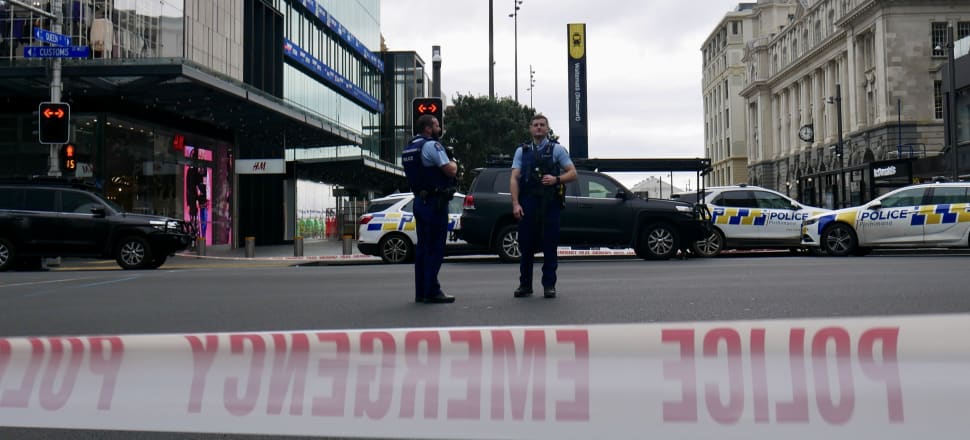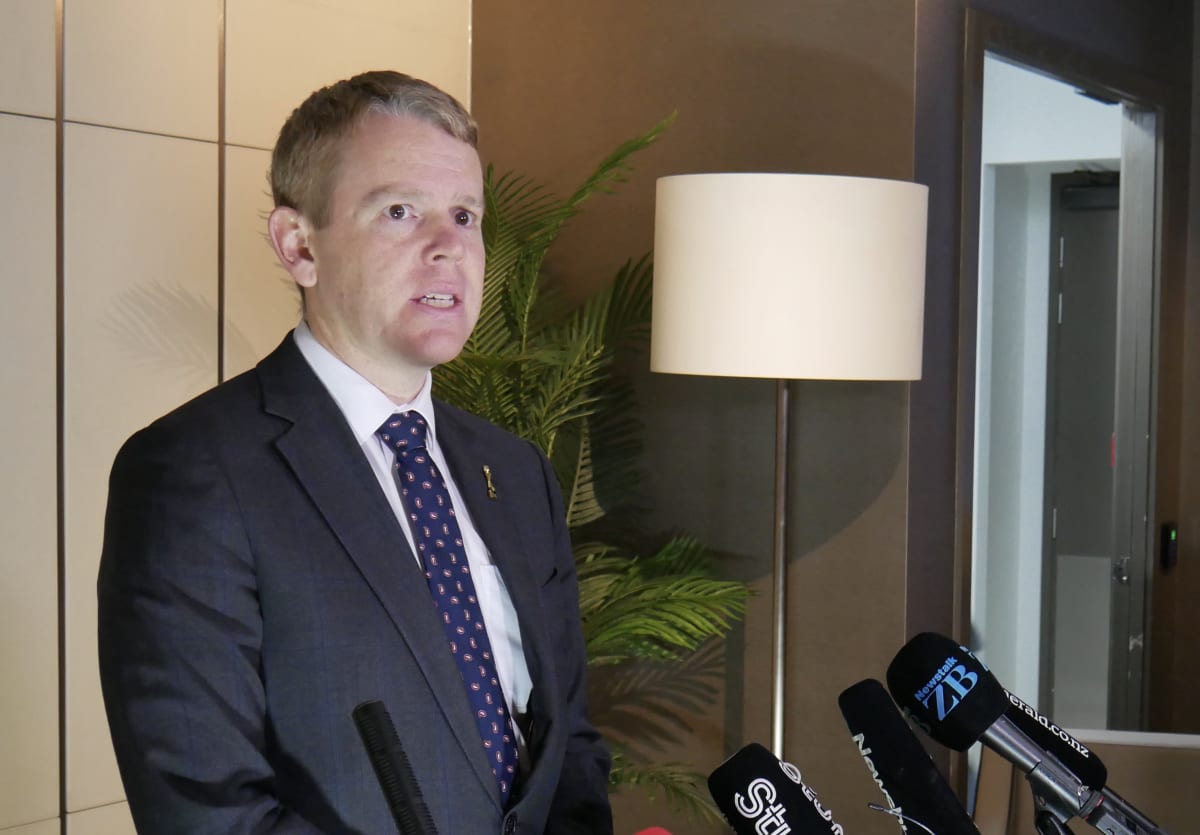
Both major party leaders put politics to the side as they responded to the shooting on Auckland’s Queen Street
A systematic review of law and order policy could be on the way alongside a review into the Department of Corrections' handling of home detention cases, after Thursday's shooting in downtown Auckland.
It was supposed to be a day of celebration in Auckland’s city centre.
With the opening ceremony of the FIFA Women’s World Cup taking place Thursday night, the city was fuller than usual with a diverse mix of accents and hospitality operators were gearing up for what they hoped will be a bumper few weeks.
Instead, gunshots rang out over downtown.
READ MORE:
* Auckland gunman had home detention exemption
At least 10 people were shot when 24-year old construction worker Matt Tangi Matua Reid showed up at his downtown work site brandishing a pump-action shotgun.
Three people have died, including the shooter himself, who was killed during an exchange of fire with police after barricading himself in an elevator shaft. Police have yet to confirm whether the shot that killed Reid came from police or his own weapon.
Tragedy striking just a stone’s throw away from the Queens Wharf fanzone threatened to cast a pall over the tournament’s first moments, although officials were clear that they see it as an isolated incident that wouldn't affect the sporting event.

As the facts came to light, the mood on Auckland’s streets was fractured and tense. The details of the shooting dribbled unevenly to commuters, meaning many hit cordoned-off streets with great surprise.
Others grouped at the cordons filled them in, or they reached for their phones.
As the immediate danger lifted and it became clear that the shooter had died, the cordons remained. A fleet of ambulances descended on Quay Street to assess the damage – there were three minor injuries and seven people who survived gunshot wounds and were taken to hospital.
One police officer was shot during the exchange of bullets with the shooter.
At the same time, at least one person admitted themselves to Auckland City Hospital with a gunshot wound.
The shooting happened right in the beating heart of downtown, where important bus and train routes meet up with ferries. Much of this was held up for half of the day, while tourists were steadily let out of hotels within the lockdown zone.
One American family appeared at the cordon and despaired to see H&M was a no-go. They had lost their luggage on the flight over and were hoping to pick up some economically-priced underwear at the store.
Once the immediate threat had passed, many police officers found themselves faced with the primary role of bouncer – turning late commuters away from the cordon if their workplace happened to be within.
One staff member at Botswana Butchery, a restaurant located in Quay Street’s ferry buildings, said she was supposed to come in at 10am but her boss had told her to wait a couple of hours. At noon she arrived to a police officer telling her she wouldn’t be able to reach the restaurant for some time.
Another officer told a hospitality worker unable to reach his place of employment that he might be about to have a “well-deserved day off”.
But with Queens Wharf’s Cloud-based fanzone beyond the cordon, people who were able to flash FIFA cards were allowed through.
Things were largely back to normal by mid-afternoon down by the waterfront when it comes to cordon and roadblocks, but a sense of shock remained palpable in the air.
Police Commissioner Andrew Coster spoke to press at 1pm, soon after the tragic events and immediate response were over.
He said it was a “shocking and traumatic” day for Aucklanders, but gave a reassurance there was no cause for ongoing concern.
The police presence at Thursday night’s World Cup opening ceremony and match would have been elevated anyway, but was bolstered to give reassurance.
Coster said there was no suggestion of an ideological reason for the attack. It appeared to be some kind of workplace-related dispute.

Prime Minister Chris Hipkins arrived in Auckland in the early afternoon and described the shooting as a “tragic set of events". He said there would be many questions to answer in days to come.
“The victims went to work this morning as they would do any other morning, but they will not be coming home tonight,” he said. “Their families, their loved ones, will be feeling that, as will the whole country.”
The Department of Corrections indicated it would conduct a review of the man’s home detention sentence, while Hipkins said his office would explore whether a wider system review was needed.
When asked whether the shooting was a failure of New Zealand’s gun control laws, Hipkins said it was too soon to say.
“I think one of the things that we will all have a question about is how the shooter got the gun in the first place, and I think before we make any judgment on the robustness or otherwise of our gun laws, we need to actually understand that first.”
After an emotional media appearance in the morning, Hipkins was sombre and said the whole country would be sending out support to those affected.

National Party leader Christopher Luxon was also unwilling to politicise events too quickly, saying it would be “disrespectful” for him to start talking about law and order reform today.
Instead, like Hipkins, he extolled the heroism of the frontline staff who willingly went into danger to keep others safe.
In Luxon’s case, he did it from an exposed spot on a rainy Queen Street. Luxon brought long National Party police spokesperson Mark Mitchell, a former member of the Armed Offenders Squad.
Mitchell said facing an active shooter was “almost the worst scenario” a police squad could face.
Luxon said there would be questions to answer on a later date – namely, “have we got the balance right” on law and order.

Luxon had been on his way up to Auckland to attend the World Cup opening ceremony when he heard the news, which he described as shocking.
“When you hear the word active shooter, that is not something that I’m used to hearing in New Zealand,” he said. “I was used to hearing that when I lived in America regularly, but it is not something that is normal or happens in New Zealand often.”
Nevertheless, as night fell, the crowds gathered at Eden Park to see New Zealand score a shock upset 1-0 win over Norway on the first game of the tournament.
Just after 12 hours after the shooting, and after a solemn minute's silence, around the stadium it seemed even the tragedy of the morning had not curtailed the enthusiastic hubbub of the world coming together on an Auckland pitch.







